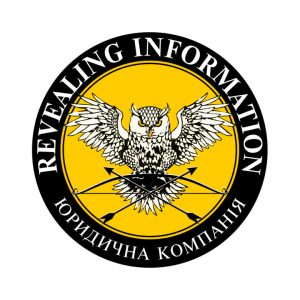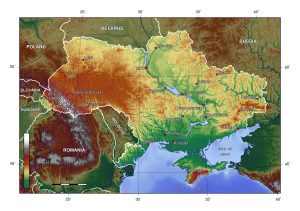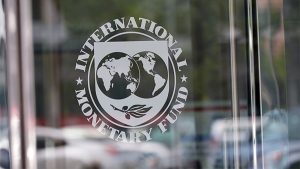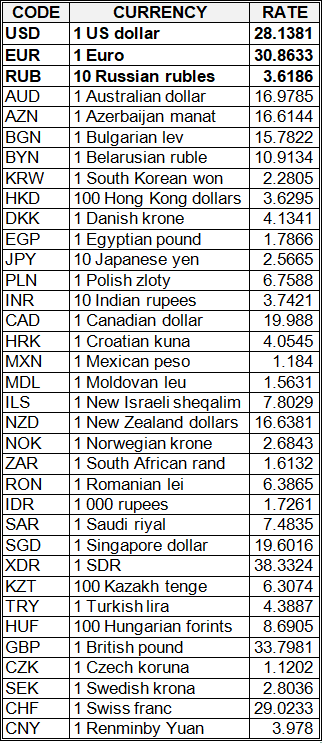
A clearly defined procedure for the mandatory hospitalization of citizens who are diagnosed with coronavirus (COVID-19) or are suspected of carrying the virus will prevent possible abuse that may be caused by a restriction of patients’ rights, lawyers interviewed by Interfax-Ukraine have said.
“A clear fixed procedure for involuntary hospitalization, responsibility for violation of the rights of sick people will prevent the abuse that may occur during involuntary hospitalization,” Managing Partner of the Revealing Information Law Firm Oleksandr Keer said.
According to him, the procedure for hospitalization of patients by ambulance teams in medical institutions, approved by order of the Health Ministry No. 370 dated June 1, 2009, provides for the patient’s mandatory consent to hospitalization. At the same time, the law on ensuring sanitary and epidemic well-being of the population establishes that persons with especially dangerous infectious diseases, in case of refusal to be hospitalized, are subject to compulsory inpatient treatment, and carriers of the causative agents of such diseases and persons who have contact with such patients are obliged to be under medical supervision and quarantine in the prescribed manner.
Keyer emphasized that COVID-19 was included in the list of such diseases by order of the Health Ministry dated February 25, 2020.
Meanwhile, the law on the protection of the population from infectious diseases (adopted in 2000) provides that the central executive body, which ensures the formation of state policy in the field of health (Health Ministry), establishes the procedure for hospitalization, treatment and medical monitoring of patients with infectious diseases, contacts and bacterium carriers, as well as the conditions for their stay in relevant healthcare and scientific institutions.
“At present, there is no normative legal act that would determine the procedure for hospitalization, treatment, medical supervision of patients with infectious diseases, except for patients with tuberculosis,” the lawyer said.
Obligatory medical examination and hospitalization of patients with COVID-19 can be carried out on the basis of a corresponding statement of a representative of a medical institution by court decision. However, according to Keyer, the procedure for considering this category of cases will need to be provided for in Ukraine’s Civil Procedure Code to ensure rights, freedoms and interests of sick people.

A digital topographical 1:100 000-scale map has been created in Ukraine, and it covers the entire country, Deputy Minister for Development of Economy, Trade and Agriculture Taras Vysotsky has said.
According to his report in the Facebook social network on Friday, the map contains information about the administrative-territorial structure of all levels: level 1 – Autonomous Republic of Crimea, regions, cities with special status (Kyiv and Sevastopol), level 2 – districts and cities of regional significance, districts in cities with special status; level 3 – borders of the amalgamated territorial communities; level 4 – the boundaries of city, town and village councils; level 5 – the boundaries of settlements.
“The map will be needed when deciding on the planning and use of natural resources, the economic development of territories, the design of large industrial complexes, navigation, and other purposes,” the deputy minister wrote.
According to Vysotsky, the digital topographic map will become the basis for the creation of geographic information systems, special, thematic and other maps and plans, the development of the national infrastructure of geospatial data at the national level.

Ukraine has all chances to sign a new financial agreement with the International Monetary Fund (IMF), but it is the Verkhovna Rada is to do the final step, First Deputy Governor of the National Bank of Ukraine (NBU) Kateryna Rozhkova has said.
“Ukraine as a state today continues negotiating on attracting IMF assistance… The chances are great, but the last step is ours, in fact, it is the Verkhovna Rada, which must adopt two bills, which are the so-called prior actions. This is the land bill and the bill about banks,” Rozhkova said during a press briefing on Friday.
She also said that the IMF is ready to increase the scope of the Extended Fund Facility (EFF) compared with the previously agreed $5.5 billion.
“We are optimists. If the EFF is approved, Ukraine will be able to go through difficult times to combat the virus,” Deputy Governor of the central bank Oleh Churiy said.

Ukrainian business continues providing its support in fighting the coronavirus disease COVID-19 pandemic, sending money to crisis response teams or buying artificial lungs ventilators, other equipment and protective equipment for medical workers.
In particular, the RDS group of companies, involved in the construction and operation of roads belonged to Yuriy Shumakher and Yevhen Konovalov, bought the Oricare V8600 artificial lung ventilation machine (the United States) for the city of Odesa, and also provides financial assistance to local authorities for the purchase of protective equipment (masks, disinfectants) in the seven regions where it operates.
Makar Paseniuk and Kostiantyn Stetsenko’s ICU investment group purchased COVID-19 tests and intensive care equipment for Kyiv designated hospitals. In particular, for the Oleksandrivska City Clinical Hospital, which receives the main flow of patients with possible COVID-19 disease, the ICU acquired 200 additional polymerase chain reaction (PCR) tests. The investment group provided the city hospital No. 4, one of the three designated hospitals in Kyiv, with almost 5,000 units of intensive care supplies: virus-bacterial filters, breathing circuits, endotracheal tubes, oxygen masks and drainage bags, and the Kyiv perinatal center received three all-in-one intensive care monitors.
The Regional Gas Company (RGC) of Dmytro Firtash purchased medical equipment, components for it, protective equipment, as well as materials and medicines for the amount of UAH 10 million and plans to send another tranche of assistance. In particular, RGC was able to purchase an artificial lung ventilator and monitors for existing ventilators, 2,000 express tests, 30,000 masks and FFP2respirators, 5,000 special glasses, about 5,000 gowns and special overalls and about 3,000 biosecurity kits, as well as disinfection solutions, medicines and fuel for ambulances.
The P&O Maritime Ukraine towing company transferred UAH 6.8 million to the Odesa crisis response team, and TIS-Grain sent UAH 3 million.
National bank of ukraine’s official rates as of 27/03/20

Source: National Bank of Ukraine